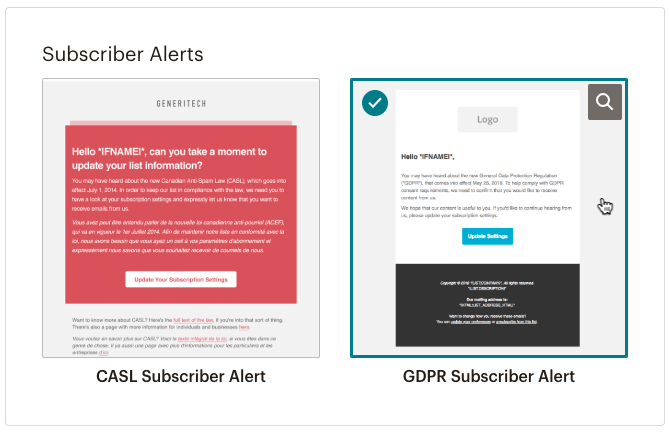One of the laws you should be aware of if your website employs email marketing is the General Data Protection Regulation (GDPR). It is a new privacy-focused regulation that took effect in 2018. There are actions you may do to protect yourself against GDPR fines, fortunately. You may want to address the compliance requirements head-on and avoid penalties by understanding what the rule covers. We’ll go through what the GDPR is and how it affects email marketing straight from experts at an email marketing agency. Let’s get started!
An Overview Of The GDPR
The General Data Protection Regulation (GDPR) is a set of EU regulations that protects digital privacy and governs various forms of online consent. The GDPR has only been in force since 201, so it is still relatively new.
The GDPR’s principal objective is to offer EU individuals greater control over how personal data is collected, stored, and used on the internet. It brings websites that gather visitor and customer data under new obligations, including getting consent and allowing consumers to request that their data be erased.
An essential thing to remember about this new rule is that it applies to any email marketer that gathers data from EU residents, regardless of where the firm is located. This implies that the GDPR will certainly affect your email marketing strategy even if your company is not headquartered in Europe.
Violations of the GDPR can result in massive fines of up to 20 million pounds or 4% of your worldwide sales, whichever is larger.
How To Make Your Email Marketing GDPR Compatible
We’ll look at how you comply with GDPR when it comes to email marketing. Before the major Christmas marketing push, it’s critical to get your email campaigns ready to go. Remember that these are simply guidelines, and you should consult a lawyer to verify that your company is GDPR-compliant as a whole.
Step 1: Make Sure Your Email Marketing Service Is Up To Date
The first step is to determine which tools your email marketing platform provides to assist you. Many email marketing firms have produced GDPR-compliance instructions relevant to their platforms in the aftermath of the GDPR.
It could be time to switch email marketing providers if your current solution doesn’t have the capabilities you need to ensure GDPR compliance.
The popular MailChimp service, for example, has a GDPR permission gathering form with extensive instructions on how to utilize it:

Step 2: Get Your Subscribers’ Permission
One of the essential aspects of the GDPR is that to keep user data, you must get informed consent (including email addresses). The consent should be provided freely, explicitly, in an unambiguous and informed manner.
If you believe you have emails on your list that were added without the owners’ specific permission, you should write an email asking for permission to stay on the list right away. This is particularly critical since the GDPR demands evidence of permission for data acquisition.
Sending out a GDPR permission collecting form will provide you with such proof. Again, your email marketing service could have features to assist you.
Step 3: Include A Clear Opt-Out In The Footer Of Your Emails
The GDPR also demands that you make it possible for users to revoke their permission. This might just be an ‘Unsubscribe’ button in marketing emails (something you may already have).
You should be able to add a custom message even if you have a default unsubscribe option. Unsubscribe options are usually configurable in most email marketing systems.
You may even alter the unsubscribe page in certain email marketing platforms. You may then include a message urging your subscribers to stay on your mailing list.
Step 4: Take A Look At Your Data Retention Policies
Finally, the GDPR makes you responsible for how you store personal information. It mandates that any data maintained (such as a copy of email addresses saved in a file on your computer) be kept securely and for no longer than necessary.
Guidance on data retention and the GDPR have been created by the Information Commissioner’s Office (ICO), a legal agency in the United Kingdom. If you’re a big company, you might have to develop a data retention policy (contact a lawyer if you’re not sure). Even small firms, however, should follow the ICO’s checklist and verify that they are familiar with the GDPR’s data retention regulations.
The essential aspect is that these guidelines stress the reduction of stored data – whatever information you keep must have a justifiable cause. Email marketing initiatives, for example, may be a reason to keep subscribers’ email addresses on file. They would not, however, constitute a valid cause to keep their credit card details (and so on).
Summing Up
The GDPR is broad in reach, both in terms of geography and in terms of the obligations it places on businesses. It will become increasingly important for businesses to be compliant as enforcement grows and regulatory authorities announce more and bigger fines. As an email marketing agency, we would advise that even though your company is not headquartered in the EU, if there is a potential that your email list has EU-based subscribers, you should definitely comply.
Author: Kevin George is the head of marketing at Email Uplers, that specializes in crafting Professional Email Templates, PSD to Email conversion, and Mailchimp Templates. Kevin loves gadgets, bikes & jazz, and he breathes email marketing. He enjoys sharing his insights and thoughts on email marketing best practices on email marketing blog.





